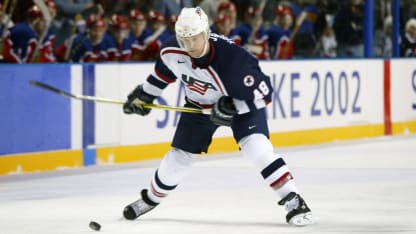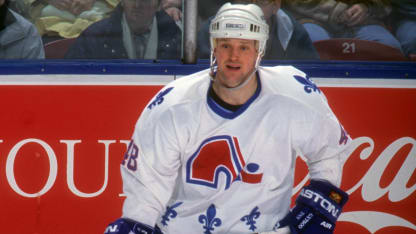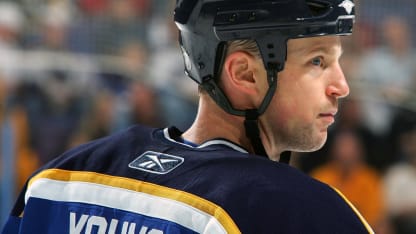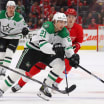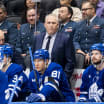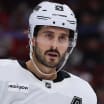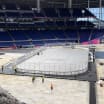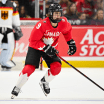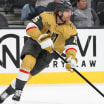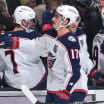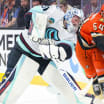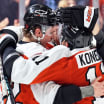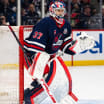"I went down in that dank, stinky basement and I just shot pucks," Young said. "You didn't have the stuff they shoot off that you can buy in the store today. It was just shooting off the cement. There was a dead bat lying next to me because we had bats in the house all the time, but I was just a little kid and I thought it was awesome."
For building that net and much more, Young said his father, who died in 1999, and 85-year-old mother, Barbara, are the first ones who deserve thanking when he makes his acceptance speech at the 2017 U.S. Hockey Hall of Fame Induction Celebration at the Westin Boston Waterfront Hotel on Dec. 13. Also to be inducted that night are former coaches Ron Wilson, Jack Parker and Ben Smith, and retired NHL linesman Kevin Collins.
"My parents, I'm going to thank them because of the attitude they raised me with," Young said. "There was never any pressure. There was never a plan that, 'OK, you're going to go here and then you've got to play [at a Division I college] and then, hopefully, you'll be in the NHL.' It had nothing to do with that. They just wanted to come watch me play hockey. They were very excited that I was happy and that made them happy. That was it.
"And hockey led the way. It opened doors."
Those doors took Young, now 50, from St. Mark's High School in Southborough, Massachusetts to Boston University, where he played for Parker and Smith (an assistant) for two seasons, to the Hartford Whalers, who selected him with the No. 11 pick in the 1986 NHL Draft, to winning the Stanley Cup with the Pittsburgh Penguins in 1991 and the Colorado Avalanche in 1996.
In 1,181 NHL games with the Whalers, Penguins, Quebec Nordiques/Avalanche, Mighty Ducks of Anaheim, St. Louis Blues and Dallas Stars, he had 757 points (342 goals, 415 assists) before retiring in 2006.
